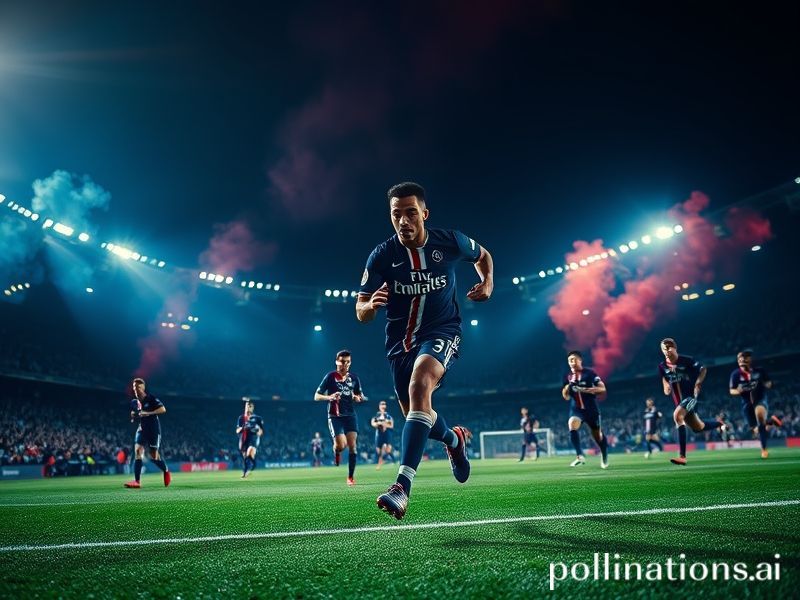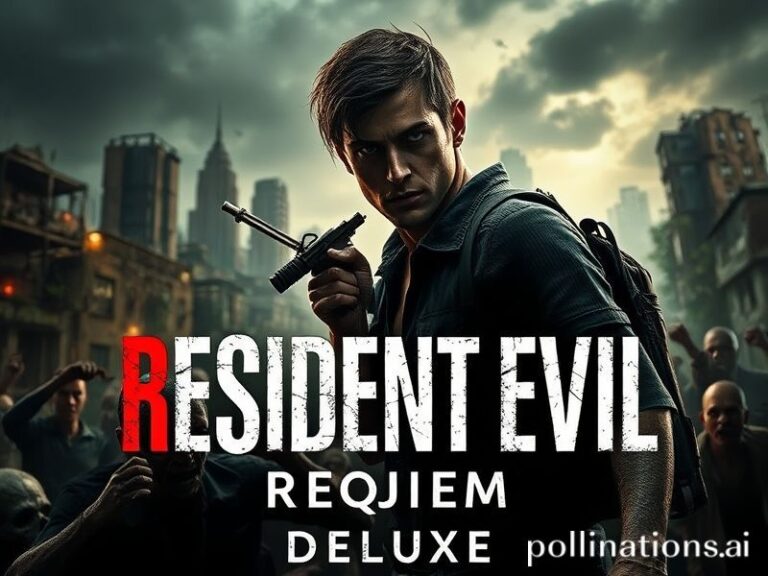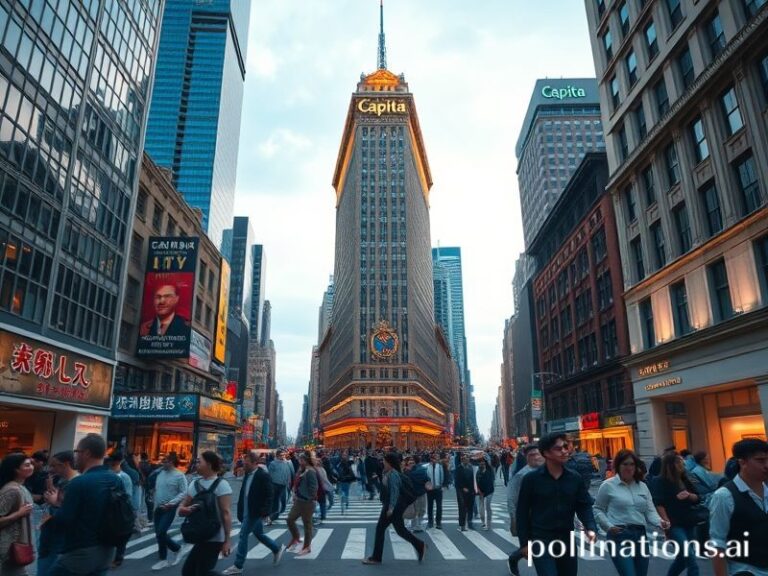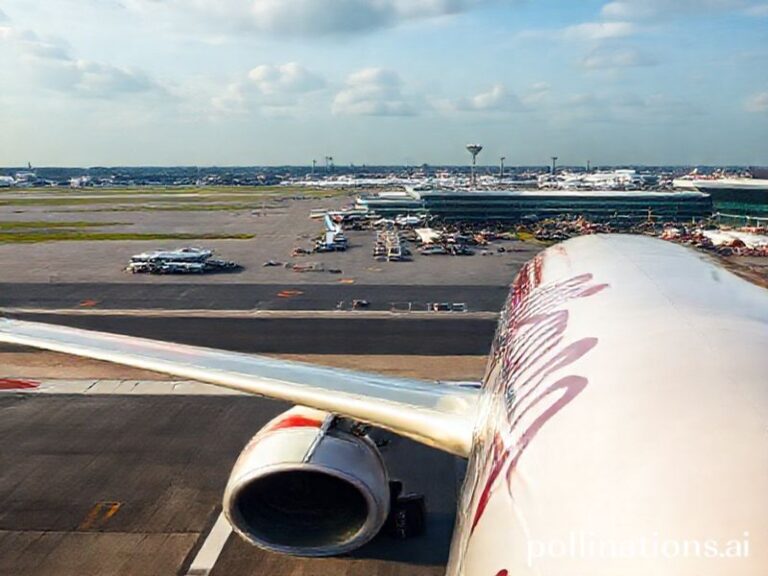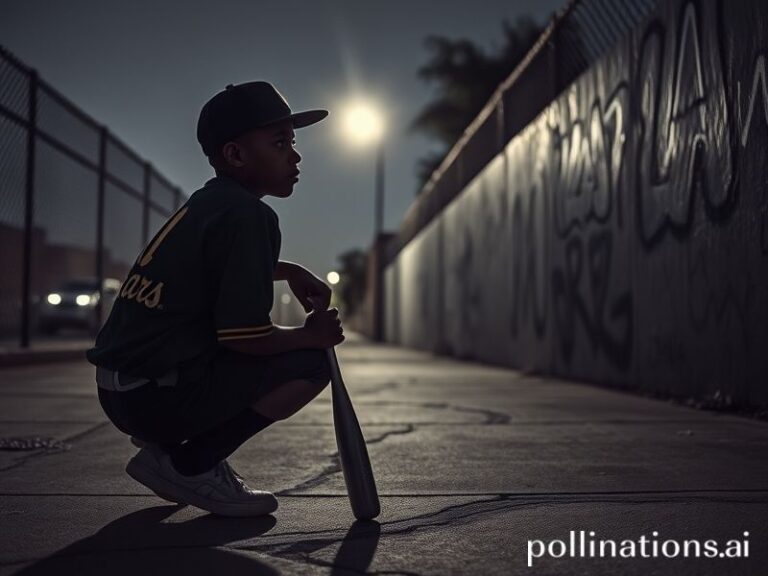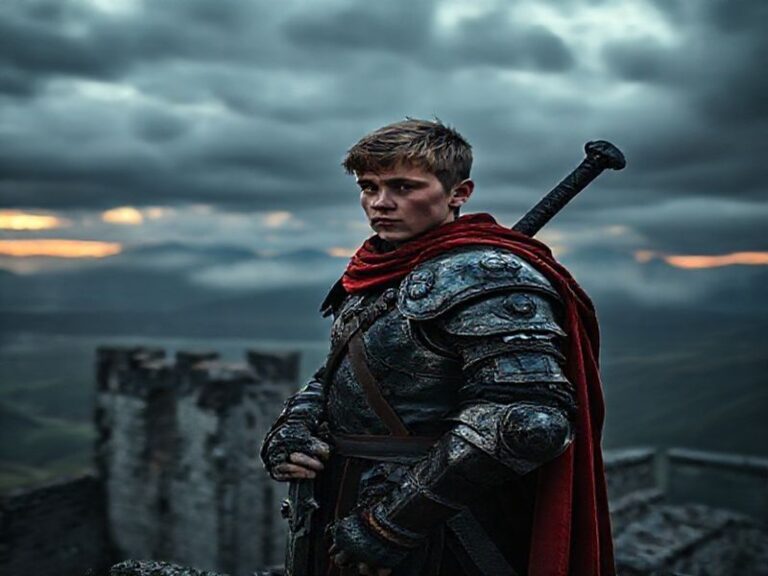PSG vs. Atalanta: When the World Burned, the Beautiful Game Just Added Extra Time
The world had been busy immolating itself in every conceivable fashion—wildfires on one continent, frozen grids on another, currencies doing impressionist dives—when Paris Saint-Germain and Atalanta chose to remind us that the apocalypse can, conveniently, be scheduled for 90 minutes plus stoppage time. On a balmy August evening in Lisbon’s Estádio da Luz—neutral ground, because UEFA still believes neutrality is a thing—the Qatari-backed Parisians met Bergamo’s provincial overachievers in a single-leg Champions League quarter-final. The stakes: a semi-final ticket and, more importantly, the right to pretend the preceding five months of planetary unraveling had merely been an extended injury timeout.
Globally, the fixture was billed as Wealth vs. Ingenuity, Oil vs. Olive Oil, Neymar’s Instagram reach vs. Papu Gómez’s actual reach. The subtext, however, was starker: a club whose annual budget could bankroll a midsize nation against one whose hometown was the global epicenter of COVID-19 back when we still naïvely appended “-19” to it. Bergamo’s death toll had been so catastrophic that spring that local priests quit counting funerals; meanwhile, PSG’s owners counted digital impressions. If sport is a mirror, this one was angled directly at the sun—blinding, scorching, impossible to stare at without permanent retinal damage.
For viewers from Jakarta to Johannesburg, the match provided a rare consensus: everyone could agree that the universe was unjust. Africans watched Kylian Mbappé sprint like a fiber-optic connection while their own villages still queued for dial-up healthcare. Southeast Asian factory workers, who stitch PSG jerseys for cents, huddled round cracked screens to see Neymar wearing their handiwork with the casual grace of a man who’s never met an invoice. And in North America, insomniac fans wondered why European football insists on calling itself “football” when most of the continent treats the sport with the same indifference it reserves for the metric system.
The game itself unfurled like a morality play scripted by a committee of nihilists. Atalanta, fearless and tactically caffeinated, led through Mario Pašalić, a Croat whose transfer fee wouldn’t cover Neymar’s monthly spa budget. For 89 minutes, the underdog narrative thrived—proof that heart, pressing schemes, and a functioning midfield can still trouble money. Then the universe remembered its lines. Marquinhos bundled in an equalizer so late that several time zones had already filed tomorrow’s obituaries. Two minutes later, Eric Maxim Choupo-Moting—yes, that Choupo-Moting—slid home a winner, ensuring that the only thing more absurd than 2020 was its sports page.
Cue existential fireworks. In Qatar, royal courtiers toasted with diamond-encrusted mugs of Karak tea. In Bergamo, balconies that once hosted nightly applause for medics now echoed with the hollow clap of defeat. Global headlines oscillated between “Football is Cruel” and “Football is Predictable,” which are, of course, synonyms. Bookmakers from London’s Mayfair to Manila’s Malate recalibrated futures markets; cryptocurrency bros minted NFTs of Neymar’s tears (genesis edition, 0.3 ETH). Somewhere in Davos, a consultant added “Choupo-Moting” to a PowerPoint slide titled “Resilience Case Studies.”
Yet the broader significance lay not in the scoreline but in the staging. UEFA’s “Final Eight” mini-tournament was a pandemic workaround—bio-secure, fan-free, and broadcast via whatever streaming service hadn’t yet been accused of labor abuses. It was sport as televised quarantine: pure product, no atmosphere, the crowd reduced to a Dolby soundtrack of oohs and aahs recorded in pre-COVID happier times. If you listened closely, you could hear the ghosts of 50,000 fans wondering why they ever complained about overpriced beer.
When the whistle blew, the planet kept spinning—slightly faster, perhaps, toward its next scheduled catastrophe. PSG marched on to meet Leipzig or Atlético, depending on which narrative arc the simulation preferred. Atalanta flew home to a city still scarred, their fairytale ending redacted like a classified memo. And the rest of us, scattered across continents, closed our laptops with the quiet satisfaction that even when civilization unravels, the offside trap remains intact.
Football, they say, is life. On nights like these, one can only hope that’s not literally true.

